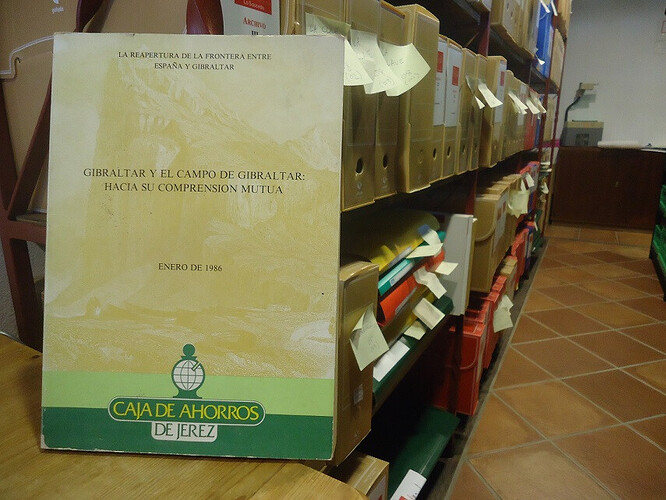‘Cordial, stable, proactive’ relations with Gibraltar key element of Campo’s future, Junta report says
24th April 2021
"Ensuring “cordial, stable and proactive” relations with the Gibraltar Government should be one of the key aims of the municipalities of the Campo de Gibraltar and the Junta de Andalucia in any roadmap for the development of the region, according to a detailed study published by the Andalusian regional government this week.
The study, prepared by the Junta alongside consultancy Auren, sets out challenges and opportunities for the Campo against the backdrop of Brexit and the Covid-19 pandemic, including proposals for developing transport infrastructure and digital connectivity as a means of promoting business, education, employment and community initiatives.
The report was presented on Thursday by Rogelio Velasco, the Junta de Andalucía’s representative for economic development, and Juan Lozano, the PSOE President of the Mancomunidad de Municipios, at an event attended by the Campo’s mayors and other guests.
The 284-page document, entitled ‘Diagnosis for the Campo de Gibraltar: Foundations for a Development Strategy for the Campo de Gibraltar’, reflects many of Spain’s traditional positions on Gibraltar.
But it acknowledges too the Rock’s economic impact on the Campo, where studies by the Junta in the context of Brexit found that 24% of jobs in the Campo rely on the Gibraltarian economy, including 14,000 cross-border workers of whom 9,000 are Spanish nationals.
Maintaining “cordial, stable and proactive” relations with the Gibraltar Government will serve “not only to minimise the impact of Brexit, but to promote synergies such as shared use of the airport, which would represent an exponential boost for the commercial and touristic development of the whole Campo de Gibraltar”, the document states.
The report analyses the current state of the Campo, detailing its strengths and weaknesses and factoring in the impact of the coronavirus pandemic and Brexit, while pointing to potential opportunities for development.
“Even with its industrial and logistical importance, the Campo de Gibraltar presents grave social problems, with unemployment rates worse than those of the province [of Cadiz] and Andalucía, which are themselves poor...” the report says.
“Furthermore, [the area] suffers from a large gender gap when it comes to female employment as well as a strong seasonal element to employment, much higher than the provincial and regional averages.”
Its recommendations are based on reaching targets set by the NextGenerationEU funding initiative, namely innovation, digital transitions, social equality and sustainable development.
Amongst the projects put forward by the document are:
-
The modernisation of the railway connection between the Campo de Gibraltar and the rest of Spain.
-
A tram or light railway system to connect all the municipalities on the Bay.
-
Bringing forward a reservoir on the Gibralmedina and modernising the water infrastructure of the area.
-
High-speed internet coverage for the entire Campo area, guaranteeing connectivity to educational, cultural and health facilities.
-
A focus on modernising the industries and logistical businesses of the area.
-
Improving educational outcomes by finding solutions to the low levels of youth employment.
-
Facilitating the incorporation of logistical enterprises within commercial areas and generating a SmartCity strategy;
-
Finding solutions to the problems of water contamination, pollution and invasive species, while maintaining biodiversity, and
-
Boosting commerce and tourism by taking advantage of the natural and cultural heritage of the area.
Mr Velasco explained that the Campo de Gibraltar was a prime location for a “shared and coordinated strategic vision” and highlighted the fact that “the most important public and private organisations, especially the Mancomunidad de Municipios del Campo de Gibraltar, have to become the principal forces in the formulation and implementation of a development plan that has been agreed upon and adopted by all.”
In a foreword to the report, Mr Lozano added: “We cannot forget that the initial statutes of the Mancomunidad, when it was first established, made reference to the important presence of Gibraltar, which gave its name to the Campo region and presented a very significant complement to its identity...”
“For that reason and as we had indicated prior to Brexit, the focus of should be on 'people politics’ that sets aside confrontation and those aspects that create difficulties and make agreements harder to reach, so as to work toward measures that serve to foster cooperation and proximity between the two communities.”


